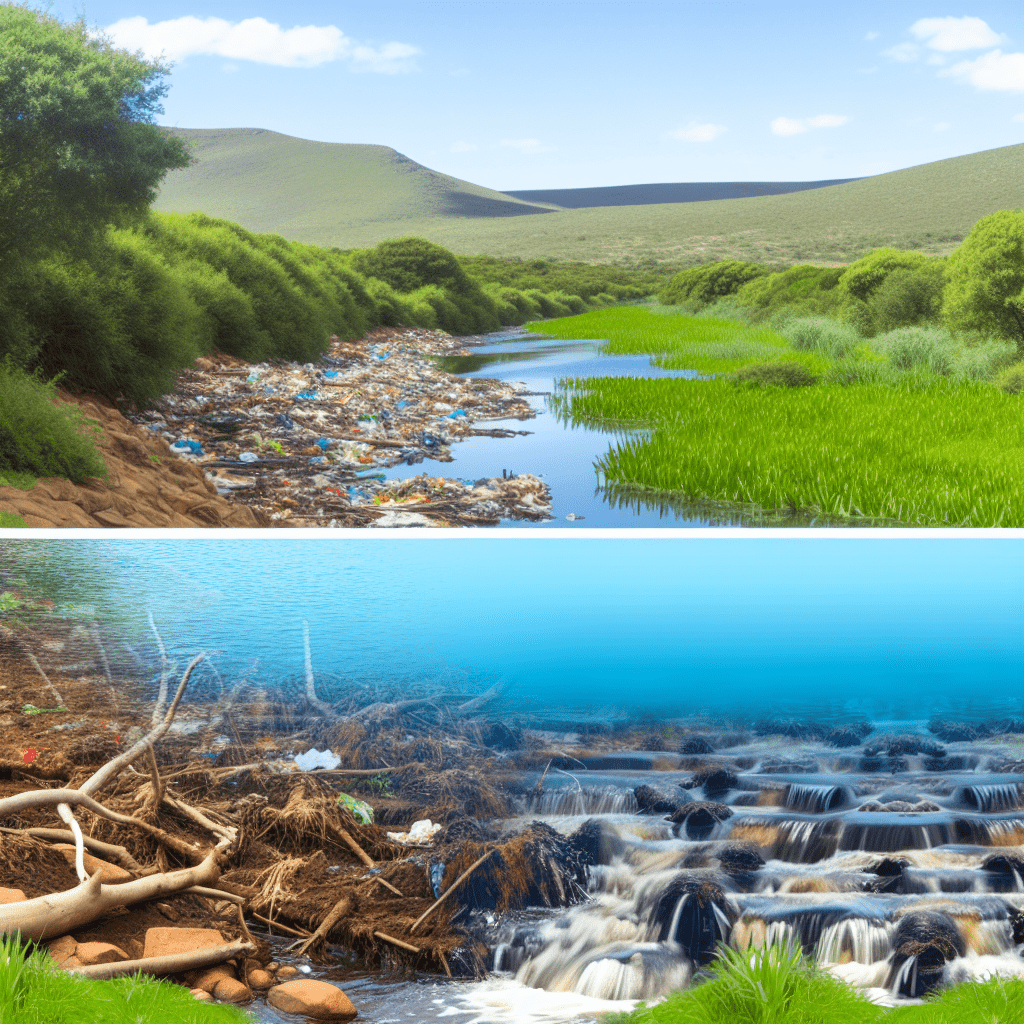”
Despite its wealth of freshwater reserves, South Africa is grappling with mounting water quality challenges. This article examines these issues, their causes, and offers potential solutions for achieving cleaner, safer water sources for all.
South Africa’s water quality is struck by a host of problems including industrial pollution, agricultural runoff, inadequate wastewater treatment, and the escalating effect of climate change.
Key pollutants in South Africa’s waters include harmful heavy metals, toxic industrial wastes, untreated sewage, and excess nutrients driving the growth of harmful algal blooms. These pollutants pose significant health threats, disturb fragile aquatic ecosystems, and exert an enormous strain on water treatment facilities.
Despite the National Water Act providing a regulatory framework, continuous water quality issues underscore the pressing need for a more comprehensive, sustainable plan of action.
Enhancing South Africa’s water quality demands more stringent regulations on polluters, substantial investments in advanced wastewater treatment facilities, wider implementation of sustainable farming practices, and climate-resilient water management strategies.
Additionally, public awareness and education play a vital role in this journey. Nationwide campaigns focused on water conservation, pollution reduction, and the vital necessity of clean water can trigger much-needed societal behaviors and attitudes towards water.
In conclusion, although navigating the path towards improved water quality in South Africa may seem challenging, it is definitely feasible. With robust policy enforcement, technological and infrastructural improvement, and heightened public participation, South Africa can transition from troubled water bodies to crystal clear streams.
By FountainGO!

